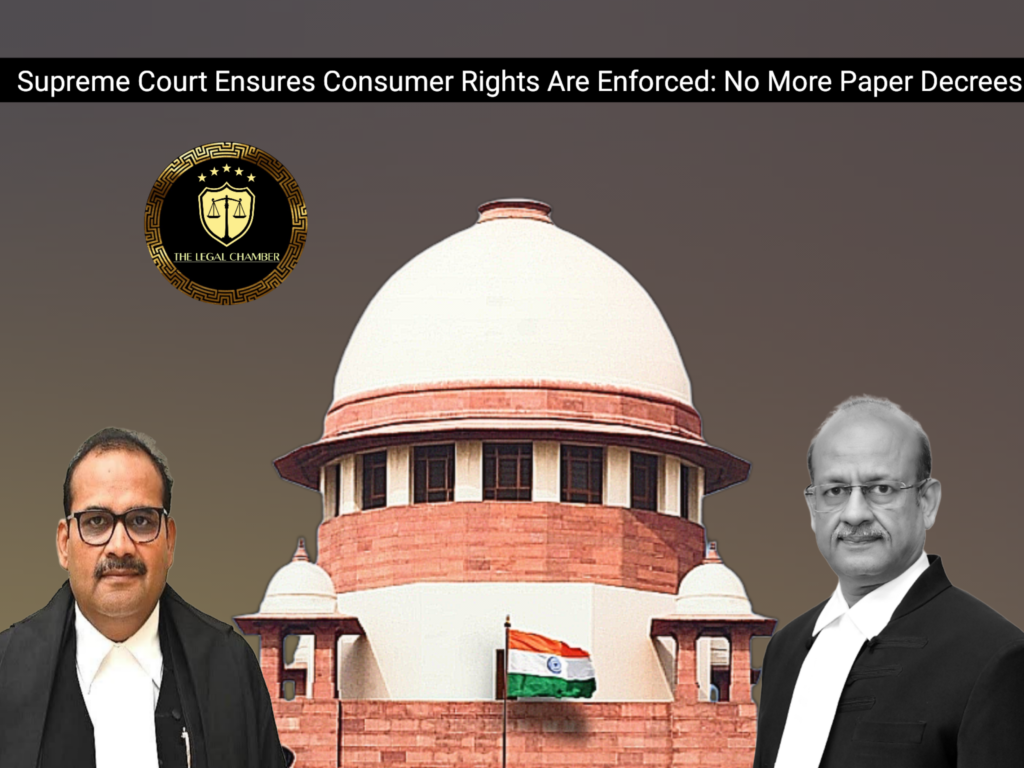
This judgment addresses an anomaly in Section 25 of the Consumer Protection Act, 1986, as amended in 2002, which inadvertently limited enforcement to “interim orders” only. The Supreme Court applied purposive interpretation to read “any order” in place of “interim order,” thereby allowing enforcement of final orders as decrees under CPC Order XXI for the period 2003–2020. It also clarified that appeals against execution orders lie only to the State Commission, with no further appeal.
Facts Of The Case:
The appellant, Palm Groves Cooperative Housing Society Ltd., comprising flat purchasers, filed a consumer complaint against the respondent builder, M/s Magar Girme and Gaikwad Associates, alleging deficient services and seeking execution of a conveyance deed for the common areas. The District Forum partly allowed the complaint in 2007, directing the builder to execute the deed. To enforce this order, the appellant filed an execution petition. The District Forum appointed a commissioner to draft the deed and, after considering objections, approved it in November 2007. The respondents challenged this execution order before the State Commission by filing revision petitions. The State Commission allowed these petitions and set aside the District Forum’s execution order. The appellant then filed revision petitions before the National Consumer Disputes Redressal Commission (NCDRC) against the State Commission’s order. The NCDRC dismissed the revisions, holding them non-maintainable. It reasoned that the respondents should have filed an appeal, not a revision, against the District Forum’s order, and thus, the State Commission’s order was deemed to have been passed in appellate jurisdiction. The appellant society appealed to the Supreme Court against this NCDRC order.
Procedural History:
The procedural history of this case commenced with the appellant society filing an execution petition before the District Forum to enforce its earlier order directing the execution of a conveyance deed. The District Forum approved the deed in November 2007. The respondents challenged this execution order by filing revision petitions under Section 17(1)(b) of the Consumer Protection Act, 1986 before the State Commission, which allowed the petitions and set aside the District Forum’s order. The appellant then approached the National Consumer Disputes Redressal Commission (NCDRC) by filing execution revision petitions. The NCDRC, vide its order dated July 16, 2019, dismissed these petitions as non-maintainable, opining that the State Commission’s order, though termed a revision, should be treated as an appeal. The appellant society subsequently filed Special Leave Petitions in the Supreme Court, which granted leave and led to the present civil appeals.
READ ALSO:Explained: The Supreme Court’s Landmark Ruling on Sand Mining and Environmental Clearance
Court Observation:
Final Decision & Judgement:
Download The Judgement Here